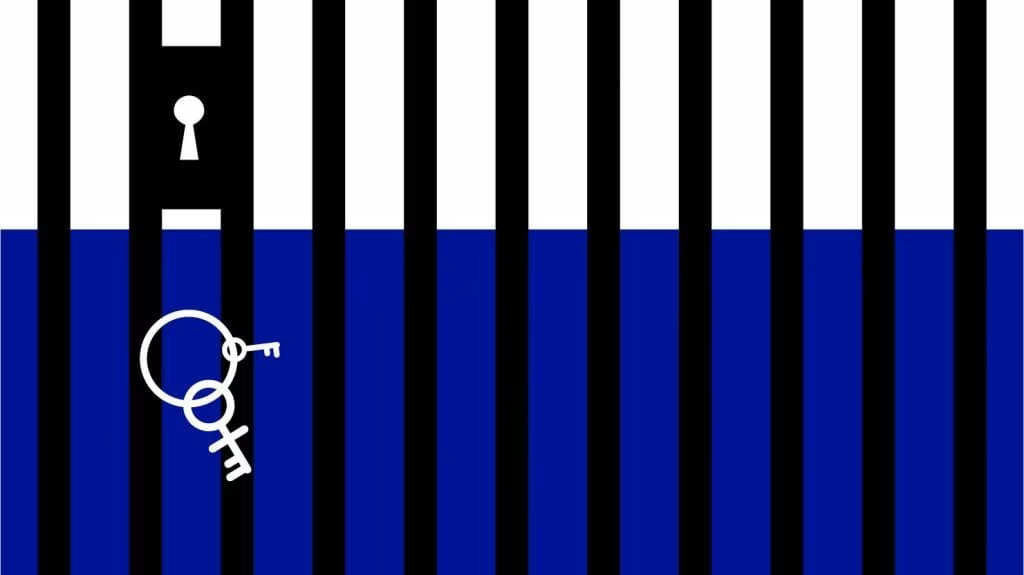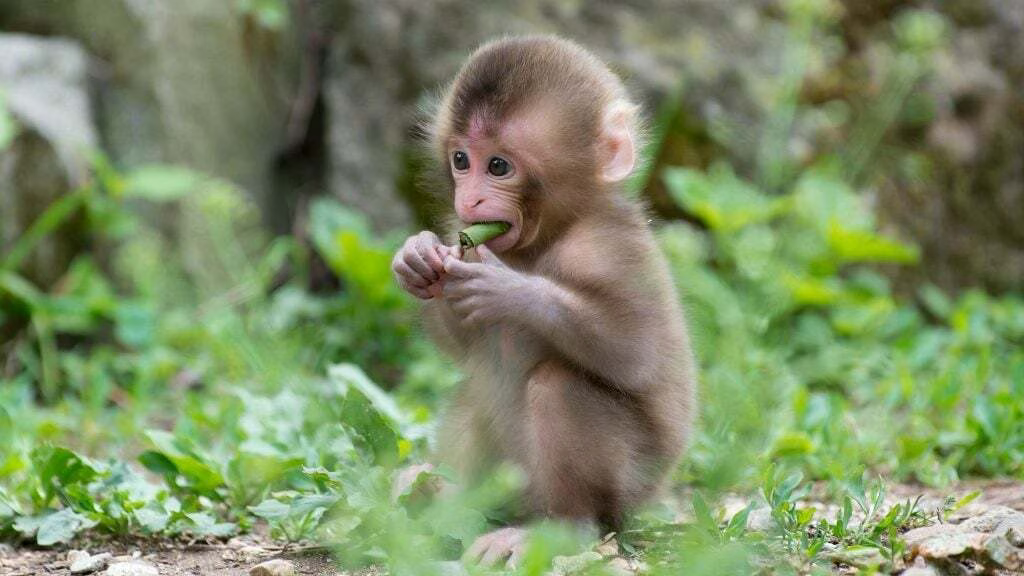My View on Abortion

I have a good friend who’s conservative and strongly against abortion. I see him posting stuff on Facebook about it, which triggers me to respond. But I never do because Facebook is not a place for serious discussion. It’s a place for partial discussion that enflames both sides.
So here’s my opinion on abortion, and why.
This is best captured in Sam Harris’ The Moral Landscape >.
To me, the bedrock of human morality is the experience of conscious creatures. I don’t believe there’s any evidence that humans arrive in this world with a non-material soul. Having anything non-material is an extraordinary claim, and thus requires extraordinary evidence.
So, as far as I can tell, we are just another life form on this planet. We are wondrous, to be sure, but we can see sparks of that same beauty in many other living creatures we share the planet with.

A cute baby monkey doing cute baby things
It’s possible to imagine a material version of a soul if you constrain it to beauty and uniqueness.
I can’t find a clear, moral line between causing pain and suffering to a human versus—say—a baby monkey. They feel pain. They fear things. They love things. They understand the concept of good vs. bad behavior, and being held responsible for choices.
Those are all good reasons to not want to harm something, but they’re not needed. All you need is the first one: they feel pain. Not just physical pain, but emotional pain. Lots of animals have this, and that is what matters most to me from a moral standpoint.
The moment we have evidence of another realm we’ll need to add that to the equation.
Morality is about suffering and happiness. Full stop. Conscious experience is the only realm we know of that matters for these things, and therefore it’s the only realm we should consider.
And that brings us to abortion.
Abortion to me is a simple, horrific calculus. It’s about calculating suffering. Specifically, it’s about minimizing suffering. The question is, how do we do that calculation? How do we weigh it?
What matters more? The suffering of an unborn child, or the suffering of a mother? And what about society? What about members of a society that see abortion in a certain way? What about the very fact that abortion could be desired or necessary at all, for anyone?
All of these questions need to be factored into a model of understanding for human suffering. It seems callous to do so, and it’s obviously very difficult work, but the alternative to using a model is making policy decisions for an entire society based on the subjective beliefs of various factions.
One faction might be a bunch of non-scientific or unsympathetic atheists who believe life and consciousness starts at age 3. Another faction might be strict Christians who believe the Bible says life starts at conception. These two groups cannot agree because they’re not playing the same sport. Or even worse—they’re trying to play the same sport but using different rules.
This shared model concept applies to more than just abortion, e.g., criminal justice.
Logical discussion and debate require a shared understanding of the world, and for abortion that necessitates a model for the benefit and harm of a given policy.
How much do human infants experience at various ages in the womb?
How much pain can they experience?
How much danger are women in from various types of pregnancy issues?
At what age of development do pain and experience increase?
What level of suffering does a mother experience in the case of forced pregnancy?
What is their level of suffering if forced to have that child?
How much suffering do unwanted children present to mothers?
How much suffering do unwanted children present society?
How much suffering does an aborted child actually experience at each level of development?
These are horrific fucking questions. Horrific.
But if we cannot ask them, and work towards answering them, then we can’t have a logical conversation about abortion. Period.
If you want to see this in a context that’s a bit less triggering, think about prisons. Or more specifically, human incarceration.
Let’s not even talk about private prisons that inventivize every part of the incarceration lifecycle.
Freedom is a key requirement for human happiness. Yet we think nothing of holding millions of humans in tiny cages for various types of crimes. We try to make the punishment fit the crimes—usually—and we have rules for how prisoners can be treated. But we’re still robbing people of their freedom.
Many will say:
Well, they deserved it. This is punishment for their actions. Babies haven’t done anything wrong.
Sure, but that’s not the point. The point is that we’ve engaged in moral calculus, just as we need to do with abortion. We’ve said stealing a car gets you X, while stabbing someone gets you Y, measured in how much human freedom you lose.
It’s the same thing with abortion really. We’re taking something that should never happen—restricting the freedom of a fellow human being, or ending the life of a human being that hasn’t been born yet—and we’re allowing that thing to happen for a reason.
That’s what we’re doing. That’s what policy is. You make this adjustment, for this reason, to avoid this outcome, or to attempt to get a different one.
Both abortion and human incarceration are abominations, and we should be ashamed of ourselves for engaging in either of them. No question.
But—unfortunately—we’re still in a phase of human civilization development where both are needed.
And our adoption story isn’t good enough to change that calculus either.
People still commit crimes, and people still have sex in situations where they’re not willing or able to become good parents. That’s it. That’s the reason we have this problem.
Whether it’s bad upbringing, bad social safety nets, random bad luck, a lack of science or moral education—whatever—it doesn’t matter. We have all those problems in our societies, and all those problems cause both crime and sex that won’t produce children landing in an ideal home.
Note that all these societal problems seem to influence both crime and abortion.
The question isn’t whether incarceration or abortion should happen. We already established that neither should. The question is, given the harm caused by unpunished crime and millions of adult humans with bad upbringings existing in the world—what should be done?
Here’s what abortion comes down to for me. Think of the suffering of a man who lives for 60 years, who grew up without parents, who moved throughout foster homes and the criminal justice system, and who caused immeasurable harm to others along the way.
What’s their level of suffering—on a 1000-point scale. And remember, it’s not just their suffering, but the suffering that was injected into the world by them existing. So all their pain, and all the pain that they’ve caused others due to their own pain. What’s the number?
More data > on inmates and family backgrounds.
Probably high. And yeah—before you say anything—obviously some people beat all the odds, grow up in foster homes, have horrible childhoods, and grow up to be extremely happy and productive members of society. 100% true. But the data clearly shows > that a massive percentage of the people who commit crimes lacked a stable, loving household growing up.
But let’s not just take one of those people because any one person can be an anomaly. Let’s take 1,000 of those men. Or 100,000. Or a million. Again, these are men who might have not been born if contraception were easier, or cheaper, or if the woman had an easy path to terminate the pregnancy.
So, one million men in the world that the mother didn’t really want, or wasn’t prepared to have. Calculate the suffering that they have experienced and created in the world.
Now compare that with the suffering experienced by the one million fetuses that were terminated early in their life, before they exited the womb.
How do those two values compare?
Based on what I know of the science, the social science, and from everything I’ve learned in my life—it’s not even close. Adults who grow up neglected experience—and cause—far more pain than do tiny little fetuses when they are terminated.
I don’t know a single pro-choice advocate who thinks it’s an ideal situation.
And again—I’m already agreeing with you that abortion is bad. I’m already agreeing with you that one abortion is one too many.
All I’m saying is that it’s our responsibility as humans—and as members of a modern society—to do this calculus. It’s the only moral way to create policy.
Just as with incarceration, we must find and implement alternatives that reduce our need to do unthinkable things to our fellow humans. Better education, better contraception, better adoption infrastructure, better foster care.
All these can help us reduce the need for extreme, unacceptable, but necessary measures in dealing with our current reality.
Abortion is neither a noble nor an immoral act. Like prison, it’s a backstop control for failed human civilization, and the better we get at addressing the underlying causes the faster we can get to a world of zero incarcerations—and zero terminated pregnancies.
I think it’ll be a while.
Notes
In case it wasn’t clear, I’m extremely pro-choice. Not only does this make sense for society as a whole, but it’s also the only path that keeps women from losing control over their bodies.
There are other levers that can reduce the need for abortions as well, such as better adoption infrastructure. The goal is to reduce the number of neglected children, not to increase abortions.
Title image from Vice.